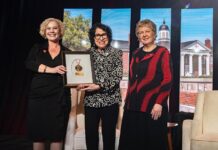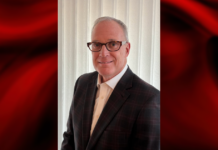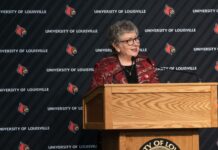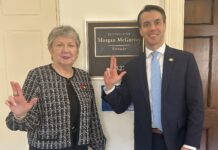
Juneteenth, short for June Nineteenth, marks the day in 1865 when the enslaved persons in Texas and other southern states were finally free – more than two years after President Abraham Lincoln issued the Emancipation Proclamation. Juneteenth is a powerful reminder that racial and social justice are goals that are still to be fully realized. This year’s commemoration features a variety of events to mark Juneteenth.
A three-lecture series on Juneteenth will examine the past, present and future state of racial and social justice. Crystal Bradley, vice president of the Black Faculty & Staff Association (BFSA), coordinated the series. UofL News caught up with Bradley to discuss Juneteenth and its continuing impact.
UofL News: How do you feel like our collective understanding of Juneteenth has evolved the past few years?
Bradley: There has been more awareness for everyone about the significance of Juneteenth, not just an awareness but a kind of freedom to celebrate the event as part of history. Juneteenth is not just Black history but it’s American history. It should be a positive thing and something that unifies us, not divides us. We can celebrate the idea of such an oppressive system of slavery being dismantled. You can imagine the enslaved getting this message that you don’t have to live this way anymore. That’s what we celebrate with Juneteenth, this message that you’re finally free from this oppressive system.
UofL News: What do you think is the most important thing that needs to be communicated about Juneteenth?
Bradley: Accuracy. Having a correct insight on history and the significance of it. It is not a divisive or taboo subject, and while it’s not pretty, it is American history and it’s our history to be embraced and shared by all. Information should be shared with everyone, so I think that’s the most critical part.
UofL News: How did the thematic concept of past, present and future – the idea of where we’ve been, where we are, where we’re going – how does that play into the struggle for racial equality?
Bradley: The Juneteenth event planning committee was deciding how to frame it, and we thought with everything going on this year, there are some people who want to rewrite history, and some just want to bury it altogether. With this theme of past, present, future, it’s kind of hitting the pause button on all of the noise to say, hey, let’s have an open, intelligent discussion with scholars and people who know about this subject matter. Let’s look back where we were as a community and talk about how the decisions made back then affected us, and how what we do now is going to affect us 20, 30, 40 years from now. We don’t want to stay stuck, so we need to have a vision to look forward. Our goal with this theme was to reflect, to pause and look at where we are and then to envision where we want to be in the future.
UofL News: Can you tell us a little bit about each speaker of the series?
Bradley: Monday, June 17th, Metro District 4 Councilman Jecorey Arthur is going to speak to our present component. One reason we chose him is because it is the 60th anniversary of “freedom summer,” where in 1964, there was a big push to increase Black voter registration. That was in alignment with looking at how decisions we made back then plays into where we are now and the importance of voting, and how that plays into where and how we move forward as a society.
On Tuesday, June 18, John Mays, former director of Diversity, Equity and Inclusion (DEI) for Yum Brands, also known as the “I believe I can – man,” is going to address the future aspect. He’s a dynamic coach, author, entrepreneur and DEI motivational speaker. He brings a lot of energy, and he’s going to speak to that vision that we can have for ourselves as African Americans and as Americans collectively.
June 19th is the official holiday, so on Thursday, June 20, the Coalition on the History of the Enslaved, which is a partnership and a collective of four diverse groups here in Louisville, will close out our speaker series. These are scholars who have deep knowledge of all the historical facts and points and sites within Louisville and surrounding areas such as the Oxmoor farm. They will speak about the impacts of the past, and tie back to how it affects us now and going forward. There’s been a lot of talk of slavery and what it is and what it isn’t, but I guarantee after listening to this group we’ll all walk away knowing more than we did before.
UofL News: Where do you see positive/ negative movement in addressing racial justice issues?
Bradley: Positive movement is that people are feeling more empowered to take up that fight, because it is a fight when you are going against forces and groups that feel like a zero-sum game. If you have, that means I can’t have, when we can actually all have. It’s a long, tiring fight, but I am encouraged that people – Black, white, Latinx – are all willing to say no, we’re going to push back on this agenda. No, we are not going to accept that.
We’re going to continue to fight, and when they change the rules of the game, which they do, then we’ll adjust and adapt but we’ll continue to push equity and inclusion forward because it’s important.
What is negative is that for every step made to increase equitable solutions, the powers-that-be are there to knock you ten steps back. Now they’re passing legislation and controlling what goes on in the classroom and changing the narrative. They’re in powerful positions that can affect that kind of change. So that’s really discouraging, but we wouldn’t have come this far as a society, as a community, as a collective, had we just accepted other people’s agendas years ago.
Learn more about the Juneteenth lecture series and other events.































